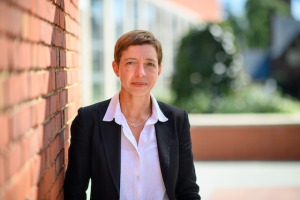|
President Grant Cornwell  opened the 11th Annual Summit on Transforming Learning with a quote from Reverend Martin Luther King Jr. opened the 11th Annual Summit on Transforming Learning with a quote from Reverend Martin Luther King Jr.
“The function of education, therefore, is to teach one to think intensively and to think critically. But education which stops with efficiency may prove the greatest menace to society. The most dangerous criminal may be the man gifted with reason, but with no morals.”
With its Friday teach-in, Rollins College sought to counter both nationally and globally the effects of this amoral education.
The thinking promoted by an amoral education directly opposes Rollins’s mission of “excellence in teaching and rigorous, transformative education in a healthy, responsive, and inclusive environment.”
Without morals, the “efficient” thinker would have no qualms about using people as means to an end. Rather than treating them as equals with human dignity and rights, they would treat them as tools or soulless machines.
For centuries, this way of thinking has justified racist ideas and unjust systems. It has continued to do so in our day.
Friday’s summit intends to spark dialogue and action combating these ideas and systems. It reaffirms Rollins’s commitment to social justice and makes its students leaders and teachers in the fight.
Yet it does more than this. It calls Rollins, as Dr. Mamta Accapadi, Vice President for Student Affairs, pointed out, to reflect and refract – to examine our ideas and analyze their constituent parts.
In that spirit, Rollins needs to reflect on and refract. It needs to not consider only what it needs to do, but also how it will do it.
Rollins teaches its students to think critically about the world around them. As much as possible, professors try to share with students the importance of social justice and recognizing privilege.
This teaching carries with it an implication.
“All people are created equal.”
This is the principle the Founding Fathers used to declare independence. They had privilege, whether they realized it or not. But more than their privilege, they valued something greater.
So did Lincoln. So did King.
“Education without morals is like a ship without a compass.” A doctor of systematic theology said that. He was the same doctor that President Cornwell quoted in his opening speech, Dr. Martin Luther King, Jr.
What an appropriate analogy for us. At Rollins, students learn to find their anchor. This means, among other things, finding where you belong.
That is well and good, but college should teach you more than where you belong. After all, people have told us that our whole lives.
Shouldn’t we learn instead where we should be going?
|








Be First to Comment